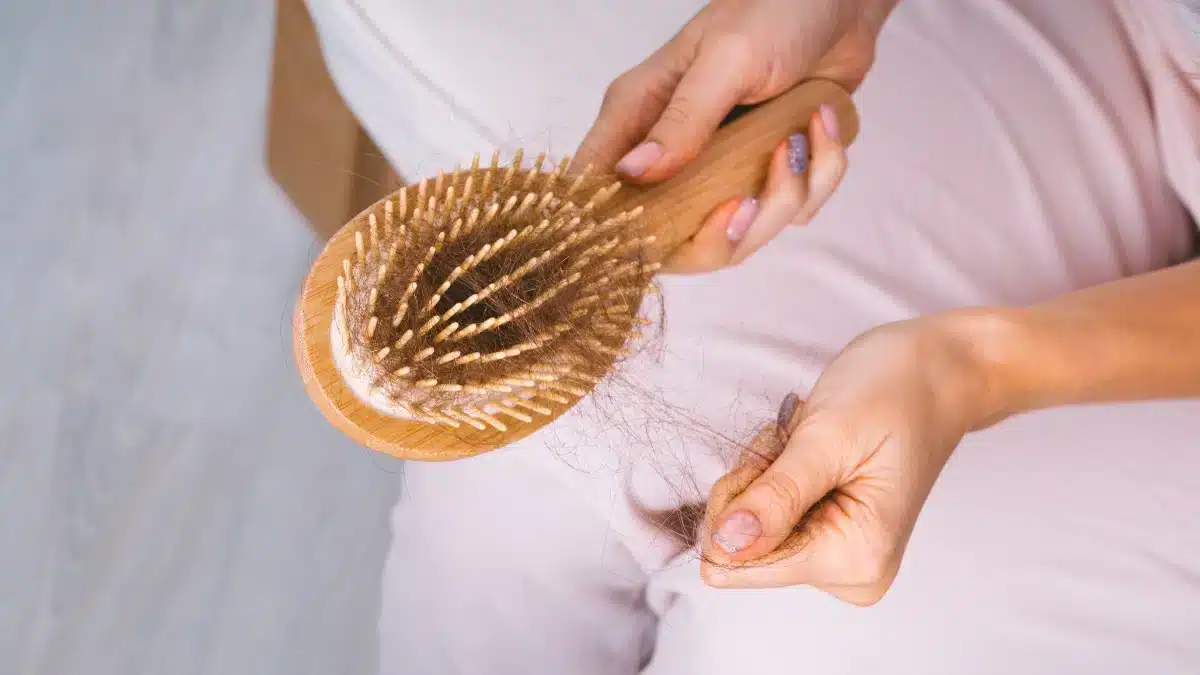Exploring the Efficacy and Safety of Finasteride for Women
Hair loss can be upsetting for a woman.
They are twice as likely as men to be distressed by hair loss.
Up to 70% of women say their hair loss upsets them, according to British Columbia Drug and Poison Information Centre.
There are many types and causes of hair loss in women.
But the most common is female pattern hair loss, also called Androgenetic alopecia.
It affects more than 21 million women in the US and is responsible for more than 65% of all hair loss in women.
In this article, you will learn how effective is Finasteride for women.
What is Finasteride

Finasteride is a medication used to treat male pattern hair loss and Benign Prostatic Hyperplasia (BPH).
It is a 5-alpha-reductase inhibitor that reduces Dihydrotestosterone (DHT) levels.
DHT is a hormone that causes hair follicle miniaturization and contributes to BPH.
Finasteride is available in oral tablet form and requires a prescription.
It can help slow down hair loss and promote hair regrowth in women with female pattern hair loss.
However, it may have potential side effects, including sexual dysfunction and breast tenderness.
It should be used as directed by a healthcare professional.
Finasteride for hair loss in women
Finasteride is occasionally employed for addressing hair loss in women affected by Androgenetic Alopecia, a genetic condition leading to scalp hair thinning.
However, it’s important to note that taking Finasteride during pregnancy can result in adverse effects, such as reduced libido and the risk of congenital disabilities.
Therefore, women must discuss the potential advantages and risks with their healthcare provider before considering Finasteride as a treatment for hair loss.
Does Finasteride work for women

The current research on the use of Finasteride in women is limited.
But a review of existing clinical trials indicates that it can effectively increase hair density and reduce hair shedding.
It is seen in both pre-menopausal and postmenopausal women with and without Hyperandrogenism.
A study of 40 postmenopausal women showed that after six months of treatment, most women experienced a significant or moderate improvement in hair count and density.
Similarly, another study found that 81.7% of women who took Finasteride for three years reported increased hair thickness, indicating regrowth.
More research is needed; Finasteride may be a viable option for treating hair loss in women.
Finasteride side effects for women
Although rare, Finasteride can cause adverse effects in women like any medication.
As a 5-alpha reductase inhibitor, it affects Testosterone.
But is unlikely to lead to decreased libido in women.
However, anxiety or depression may occur, and according to Dr. Ben Behnam.
Caution should be taken to inform patients about these possible side effects.
Dr. Ben is an MD, FAAD, board-certified dermatologist, and medical director of Happy Head.
Is Finasteride safe for women
Finasteride is a 5-alpha reductase inhibitor that can be considered as an alternative treatment for female pattern hair loss (FPHL).
However, due to its potential to cause congenital disabilities, its use for FPHL is limited, and clinical studies are scarce.
Therefore, pregnant women shouldn’t take any drugs that can harm an unborn child.
Also, Finasteride is not recommended for breastfeeding women.
It is unknown if the drug gets into the baby through breast milk.
What do doctors recommend
Minoxidil is a medication commonly used to treat hair loss, mainly male pattern baldness.
Health Canada and US FDA have approved Minoxidil for hair loss treatment in women.
While it was initially developed and tested for use in men, it has since been found to be effective for women as well.
Female pattern hair loss affects millions of women.
When used as directed, Topical Minoxidil is generally considered safe for women.
Medicines like Tugain can be effective while treating hair loss.
It increases blood flow to the hair follicles, stimulates hair growth, and prevents further hair loss.
However, it is essential to note that, like any medication, Minoxidil can cause side effects.
Minoxidil use’s most common side effects in women include scalp irritation, itching, and dryness.
Conclusion
Hair loss can be distressing for women, with many affected.
While Finasteride shows promise in increasing hair density and reducing shedding, its use in women is limited due to potential side effects and risks during pregnancy.
Conversely, Minoxidil is a widely accepted and safe option for women, approved by health authorities, and has demonstrated effectiveness in promoting hair growth.
Women must consult with their healthcare providers to explore suitable treatments for their hair loss concerns, considering the potential benefits and risks associated with each option.
Then using Finpecia can be advantageous for them. It is available at WowRx.
Frequently Asked Questions
WowRx uses only high-quality sources while writing our articles. Please read our content information policy to know more about how we keep our content reliable and trustworthy.






